News
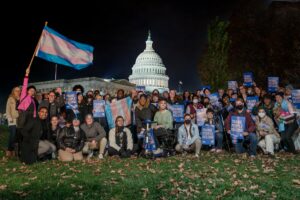
March 30, 2024
Celebrating Trans Day of Visibility
This week and every day the National LGBTQ Task Force – the country’s oldest LGBTQ+ advocacy organization – honors our trans, nonbinary and gender non-confirming siblings around the world. On March 31st we join in annually observing Transgender Day of Visibility (TDOV). Trans people deserve so much more than visibility and representation remains important. Join us in uplifting and…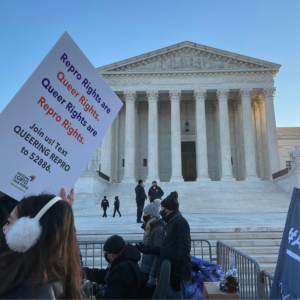
March 26, 2024
LGBTQ+ People and the Supreme Court Mifepristone Case
U.S. Supreme Court hears oral arguments in a critical case that could restrict Mifepristone as a pillar of choice and continue to roll back reproductive health access for all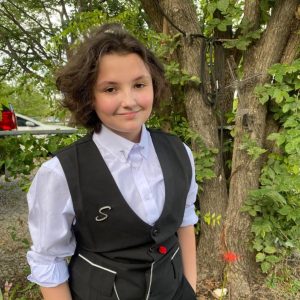
March 14, 2024
Demanding Justice and Accountability: Addressing Systemic Failures in the Wake of Nex Benedict’s Tragic Death
The death of Nex Benedict and reports that Nex took their own life continue to break our hearts, frustrate us, and anger us—this also moves us to action. Every system that should have protected Nex and supported their education and safety did not do their jobs. In the current climate, we know that Nex is…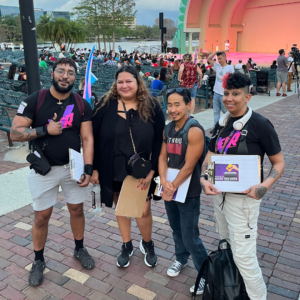
March 12, 2024
Settlement Achieved in Challenge to Florida’s “Don’t Say Gay or Trans” Law
The settlement of the challenge against the “Don’t Say Gay or Trans” law in Florida is a welcome and life-saving development and a win for the people of Florida. This decision is the direct result of activist and community efforts to fight harmful and discriminatory laws. These attacks were inflicted by elected officials and far-right…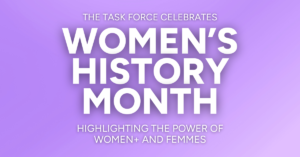
March 1, 2024
Celebrating Women’s History Month
In the spirit of Women’s History Month, the National LGBTQ Task Force continues to honor and celebrate the remarkable contributions of women+ and femmes. In that vein, we highlight four influential women+ and femmes who have left an indelible mark on history. Kierra Johnson Joining the Task Force in 2018 as Deputy Executive Director, Kierra’s…
February 21, 2024
Mourning Nex Benedict, 16-Year-Old Non-Binary Student Who Died After After Beating in Oklahoma High School
Nex Benedict (they/them) had a life full of many interests and hobbies, like many teens. They loved nature and enjoyed drawing and reading. They also liked watching The Walking Dead and played ARK and Minecraft.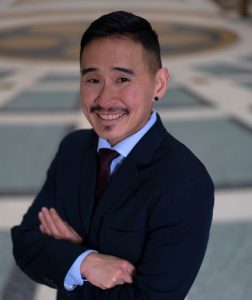
February 6, 2024
Announcing Kris Hayashi, Longtime Trans Activist, as Director of the Advocacy and Action Department
Today, the National LGBTQ Task Force announced hiring Kris Hayashi as Director of the Advocacy and Action department, which currently encompasses the organization’s policy, field, and faith teams. Hayashi is a longtime LGBTQ activist and critical leader in the fight for transgender, non-binary, and gender non-conforming members of the community.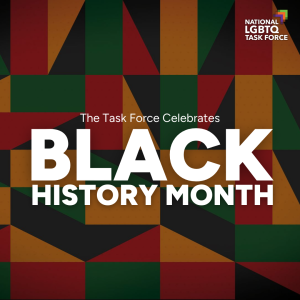
February 1, 2024
Celebrating Black History Month
Happy Black History Month! This month, we’re featuring Black-led/serving organizations and initiatives working to secure the ability to thrive within the intersections of all our identities.Get Updates, Actions, and Events
Recent Press Releases
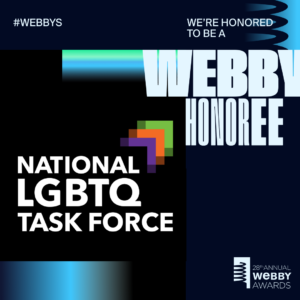
April 10, 2024
National LGBTQ Task Force Honored for DEI Website and Mobile Site in 28th Annual Webby Awards
National LGBTQ Task Force Honored in 28th Annual Webby Awards for Diversity, Equity, and Inclusion (DEI) Websites and Mobile Sites.
April 8, 2024
Black Leaders In The LGBTQIA Movement Applaud University Of South Carolina Head Coach Dawn Staley For Standing Up For Trans Athlete Inclusion
On Sunday, April 7, the University of South Carolina’s women’s basketball team won the NCAA National Championship. Ahead of the championship game, South Carolina’s head coach, Dawn Staley, made comments in support of transgender athlete inclusion in sports when she was pressed by a media member on the topic.
February 7, 2024
